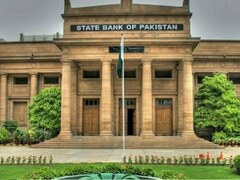SBP Underscores Importance of Structural Reforms for Economic Growth
The State Bank of Pakistan (SBP) highlighted the essential role of consistent and noticeable progress in structural reforms for fostering sustained economic expansion, bolstering external reserves, and mitigating external financing vulnerabilities.
According to the Financial Stability Review (FSR), the SBP’s annual key publication, the near-term outlook for financial stability appears promising. The report cautioned, however, that increased uncertainty stemming from the latest surge in protectionist policies and their potential effects on global economic growth and financial landscapes could present obstacles for the domestic economy.
The banking sector’s latest stress testing results indicate that it is expected to withstand various severe but realistic hypothetical shocks over the next three years, maintaining compliance with minimum capital adequacy standards. The SBP affirmed its commitment to ensuring financial system stability by proactively monitoring emerging risks and enhancing its regulatory and supervisory framework.
Macroeconomic Stability Achieved: SBP Governor
The FSR noted that the national CPI decreased to 7.2 percent in March 2025, down from 28.7 percent the previous year, which led the Monetary Policy Committee to lower the policy rate by 1,000 basis points to 12.0 percent in January 2025. It is anticipated that the reduced policy rate, coupled with an improved external account position and a stable exchange rate, will stimulate demand for private sector credit and enhance borrowers’ repayment capabilities.
Moreover, the continuation of the IMF program is poised to further strengthen macroeconomic stability. The first review of the IMF’s EFF in March 2025 acknowledged the program’s strong implementation. As a result, SBP FX reserves have risen by 41.4 percent to $11.2 billion in February 2025, stabilizing the rupee-dollar parity and easing financial conditions.
Furthermore, fiscal consolidation is progressing as planned, contributing to a favorable economic outlook. The Business Confidence Index has remained positive since August 2024, and the SBP’s recent Systemic Risk Survey indicates improved market sentiment regarding macroeconomic risks over the coming six months.
The FSR identifies cybersecurity as an increasingly significant risk to financial stability. To address this, the SBP is enhancing cyber resilience through several initiatives, including establishing a dedicated Cyber Risk Management Department to oversee the cybersecurity risks of regulated entities (REs) through on-site and off-site supervision. The SBP is also prioritizing technological innovation, cybersecurity, and data privacy under its Vision 2023–28.
The global environment presents a complex scenario for the domestic economy. While global commodity prices are decreasing and major central banks in developed economies (excluding the Federal Reserve) are reducing key interest rates, shifts in U.S. trade policy may affect the Federal Reserve’s monetary policy and global financial conditions.



Comments (0)
No comments yet. Be the first to comment!
Leave a Comment